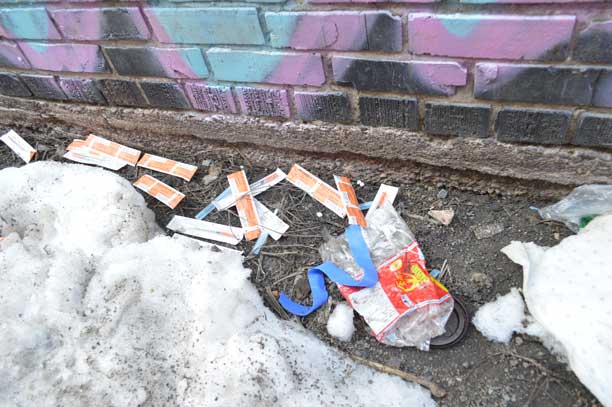
THUNDER BAY – Thunder Bay has a growing problem with addiction. The top calls that Thunder Bay Police respond to are alcohol or drug-related incidents. While there are some supports and help available for families, there are not all the supports for families that there could be to fully solve some of the problems facing our city.
Police have been reporting for the past years on the growing influence of gangs from southern Ontario coming into the city to sell drugs. Crack cocaine, oxycodone, and other powerful addicting drugs are impacting many across our city. This is generating a real issue with the fallout as addicted individuals struggle to deal with the aftermath of their addiction.
Issues with Dr. Kimberly C. Kirby, a professor in the Department of Psychology at Rowan University, in Glassboro, New Jersey, says opiate addiction can happen in any family.
Kirby, who was director of the Parents’ Translational Research Center at the Treatment Research Institute, also is a senior scientist at Public Health Management Corporation and holds an appointment with the University of Pennsylvania, in Philadelphia. She has 30 years of experience conducting research on the treatment of substance use disorders, in particular, opiate and cocaine use disorders. One of her studies focused on helping parents support the recovery of their young adults (18-26 years old) who are leaving residential treatment for an opiate addiction.
Dr. Kirby says the majority of people with substance abuse disorders started using drugs as adolescents, often between 13 to 15 years old, a time when people are more susceptible to making bad decisions because the part of the brain allows them to consider longer-term consequences of behavior is not fully developed.
Addiction, Kirby notes, is hitting everywhere, including middle- and higher-income families with sufficient resources, and those families in in which siblings are doing fine. Young people who are top athletes and those who have not suffered abuse or other traumas are developing problems.
Her advice to parents includes:
- Accept addiction is not your fault.
- You are not helpless. A common message, she says, is that people are powerless concerning another person’s addiction. “You do not have control, but you can influence them,” she notes.
- You can learn strategies to adjust how you interact in ways that encourage your child to get help.
- “Don’t enable” doesn’t mean “don’t do anything helpful.” You can be helpful – but you need to know when to help and when not to. For instance, you don’t want to rescue the person from the negative consequences of his/her drug use. For example: if your child comes home drunk and passes out on the floor, don’t bundle him/her up and carry him/her to bed. By removing negative consequences, she says, you take away one of the things that nudge someone toward stopping. However, you can do favors and support people in moments when they are sober or have taken positive recovery steps, such as completing a treatment appointment.
- Alter communication. Frequently when problems are entrenched there is no communication about the problem or there is a lot of intense communication, including yelling. These patterns do not help, and you can change them.








